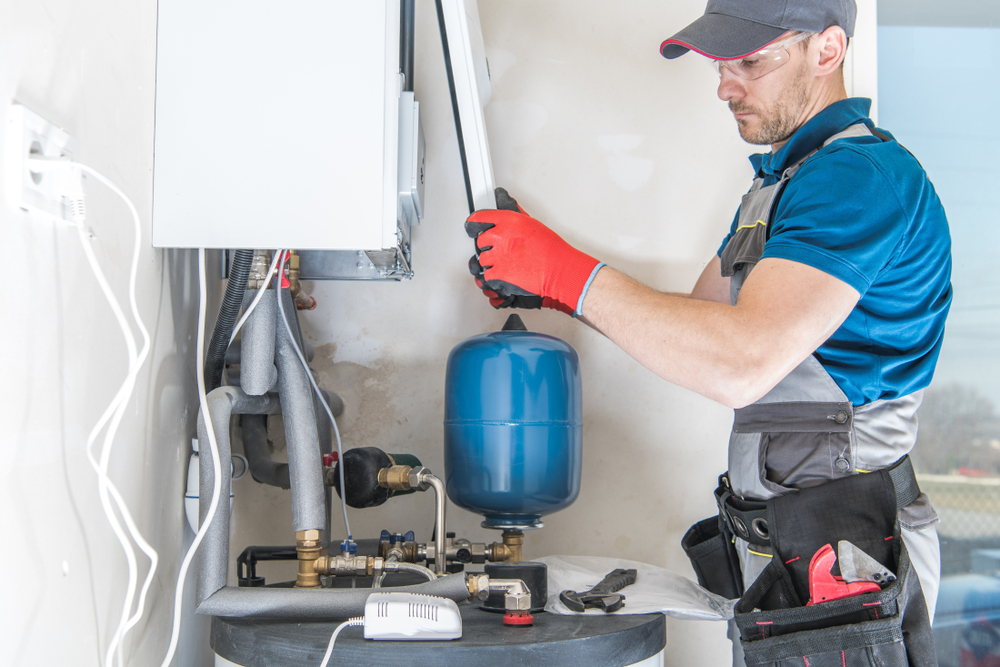
- April 24, 2024
- By admin
- Central Heating System
Is your central heating system running efficiently? Or are you noticing uneven heating, strange noises, or a sudden spike in energy bills? If so, it might be time to consider the health of your system.
This article covers everything you need to know and how much does it cost to power flush a central heating system.
Learn about the benefits of this proactive maintenance solution, the factors influencing its cost, and smart strategies to ensure your system operates at peak performance while saving you money in the long run.
A well-maintained central heating system is essential for a comfortable and energy-efficient home. Over time, however, this vital system can accumulate sludge, rust, and other debris, hindering its performance and potentially leading to costly problems.
Power flushing offers a proactive solution, restoring optimal heating efficiency and potentially saving you money in the long run.
What is Central Heating Power Flushing?
Central heating power flushing is a comprehensive cleaning procedure that utilises specialised equipment to cleanse your central heating system thoroughly.
This process removes built-up contaminants like rust and sludge, ensuring unimpeded water flow and peak efficiency for your boiler and radiators.
Benefits of Power Flushing
Regular power flushing offers a multitude of advantages for your central heating system:
- Enhanced Efficiency and Performance: A clean system ensures consistent heat distribution throughout your home, eliminating cold spots and ensuring a more responsive heating system.
- Reduced Energy Bills: By removing blockages that force your boiler to work harder, power flushing can lead to lower energy consumption and potentially significant savings on your energy bills.
- Extended Boiler Lifespan: The strain of overcoming blockages can take a toll on your boiler. Power flushing helps prevent premature wear and tear, potentially extending the lifespan of your boiler and saving you money on replacements in the long run.
- Maintaining Warranty Coverage: Some boiler manufacturers require proof of regular maintenance, including power flushing, to uphold warranty coverage.
Signs Your Central System Might Need Power Flushing
Several indicators suggest that your central heating system might benefit from power flushing:
- Uneven Heating: Noticeably cooler radiators indicate potential blockages hindering hot water circulation.
- Unusual Boiler or Radiator Noises: Gurgling or banging sounds suggest trapped air or debris within the system.
- Sluggish Heating Response: If your central heating system takes longer than usual to reach the desired temperature, it might be struggling due to inefficiencies.
- Unexplained Rise in Energy Bills: A sudden spike in your energy bills could be a sign that your heating system is working harder than necessary due to blockages.
Factors Affecting Power Flushing Costs
Power flushing your central heating system is a great way to improve its performance, but the final cost can vary. Knowing what factors influence the price helps you make informed decisions and budget effectively. Let’s delve into the key aspects that influence how much power flushing a central heating system costs:
Size and Complexity of Your System
The bigger your system, the more it costs to flush. This means a house with lots of radiators (more than 12) will generally be more expensive than a smaller house with fewer radiators (around 6 or less). This is because a bigger system takes longer to clean and might need more cleaning chemicals.
System Age and Condition
Older systems (over 10 years old) tend to have more built-up rust and sludge. These systems need a more intense cleaning, which can increase the cost compared to a newer system with less buildup. Also, if your heating system isn’t working well, with cold spots, strange noises, or slow heating, it might need extra cleaning or stronger chemicals, raising the price.
Additional Services Needed
The type and amount of cleaning chemicals used can affect the price. Sometimes, heavily clogged systems require stronger chemicals, which can cost more than a standard flush. You might consider installing a magnetic system filter after the flush to catch any leftover debris. This adds to the cost upfront but can benefit your heating system in the long run.
Understanding the Cost of Power-Flushing Central Heating System

- Average Cost in the UK: The typical cost range for power flushing a standard domestic heating system in the UK falls between £300 to £600. However, this figure can fluctuate based on diverse factors including system size, extent of debris buildup, and rates set by service providers.
- Potential Long-term Savings: While there’s an upfront cost associated with power flushing, the process can yield substantial long-term savings. By enhancing heat distribution, reducing energy consumption, and extending the system’s lifespan, power flushing translates into decreased heating bills and may mitigate the need for expensive repairs or replacements down the line.
- Professional Service Importance: Engaging skilled professionals for power flushing is paramount to ensure safety and effectiveness. Reputable service providers often offer warranties or guarantees, instilling confidence in homeowners regarding the quality of workmanship and results.
- Frequency of Maintenance: Regular power flushing is essential for maintaining optimal system performance and efficiency. Generally recommended every 5 to 10 years, the frequency may vary based on factors such as system age, water quality, and usage patterns.
Budget-Conscious Power Flushing Strategies
- Compare Quotes from Qualified Plumbers: Don’t settle for the first price you hear! Get quotes from several reputable plumbers in your area to compare pricing structures and find the best deal for your specific needs.
- Explore Off-Peak Scheduling (Optional): In some regions, plumbers offer lower rates during off-peak hours or weekdays. If scheduling flexibility is on your side, inquire about potential discounts for scheduling your power flush outside of peak times.
- DIY Power Flushing (Approach with Caution): While tempting, DIY power flushing is generally not recommended for several reasons. Power flushing requires specialised equipment and expertise to ensure a thorough and safe cleaning. Improper flushing can damage your heating system and lead to costly repairs. Consider consulting a professional plumber who can guarantee a successful and efficient power flush, potentially saving you money on repairs down the line.
Ready to upgrade your central heating system? Trust Pennington’s Group for expert solutions tailored to your needs. Schedule a consultation today and experience the warmth of superior service!
FAQs
Will Power Flushing Damage My Central System?
When performed by a qualified plumber using the proper equipment and techniques, power flushing is safe for your central heating system. In fact, a professional power flush can actually improve the lifespan of your boiler by removing harmful debris.
How Often Should I Use Power Flushing?
The recommended frequency for power flushing can vary depending on several factors, including the age and condition of your system, the quality of your water, and the presence of any noticeable issues. Generally, a power flush every 5-7 years is a good rule of thumb. Consult a qualified plumber for a personalised recommendation.
Can I Power Flush My System Myself?
DIY power flushing is not recommended for several reasons. The process requires specialised equipment and expertise to ensure a thorough and safe cleaning. Improper flushing techniques can damage your heating system and lead to expensive repairs. Consider leaving it to a professional plumber who can guarantee a successful and efficient power flush.
What are Some Alternatives to Power Flushing?
If your central heating system isn’t experiencing any major issues, there are alternative maintenance strategies you can explore. These include regularly bleeding your radiators to remove trapped air, maintaining proper boiler water pressure, and using a magnetic system filter to catch debris before it clogs your system. However, for a deep clean and optimal performance, a power flush is often the best solution.
